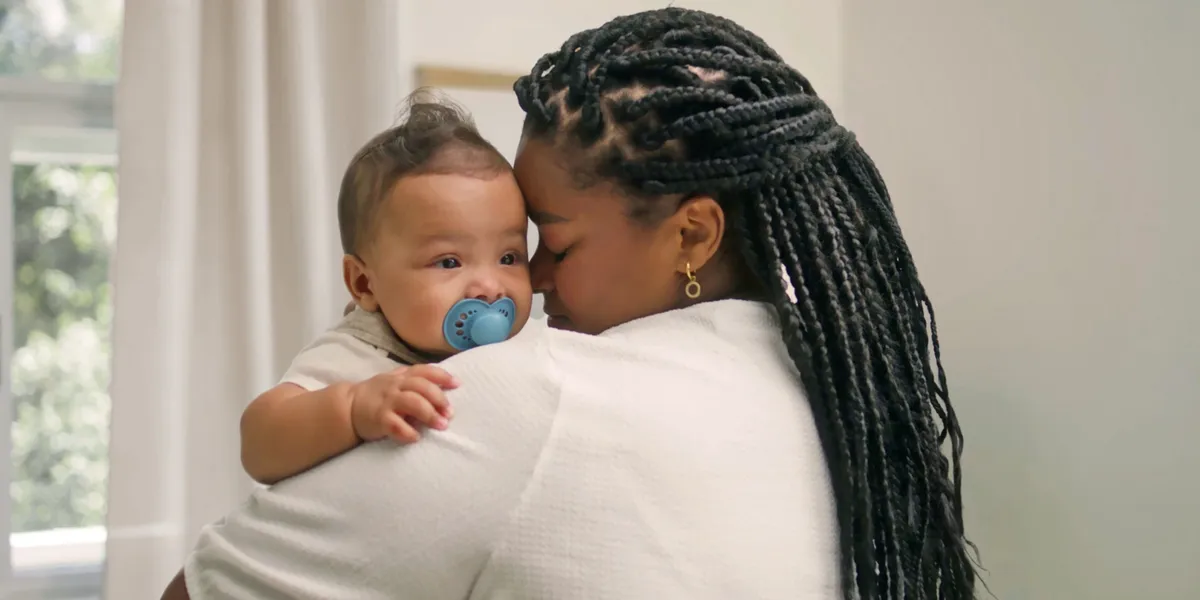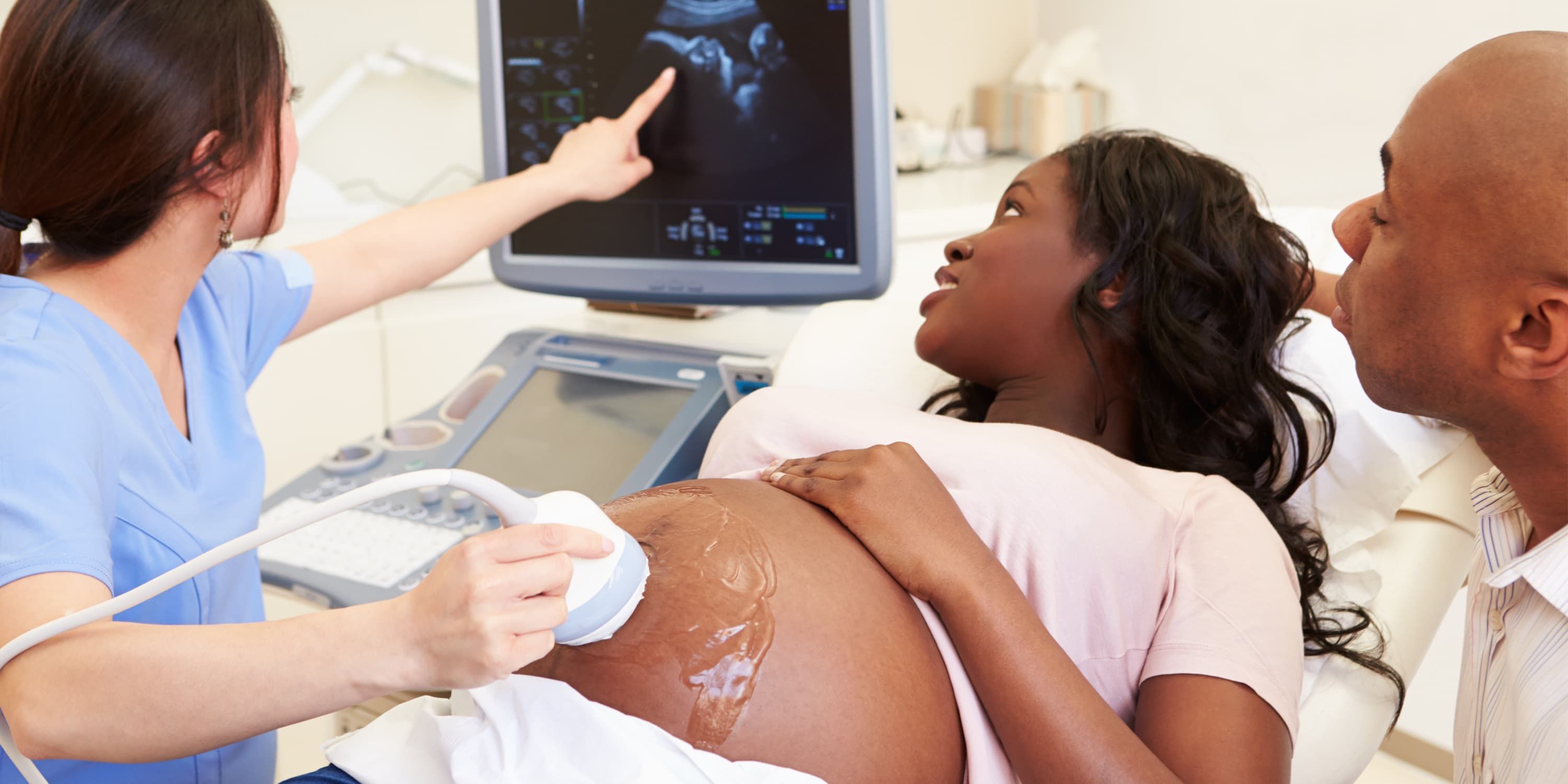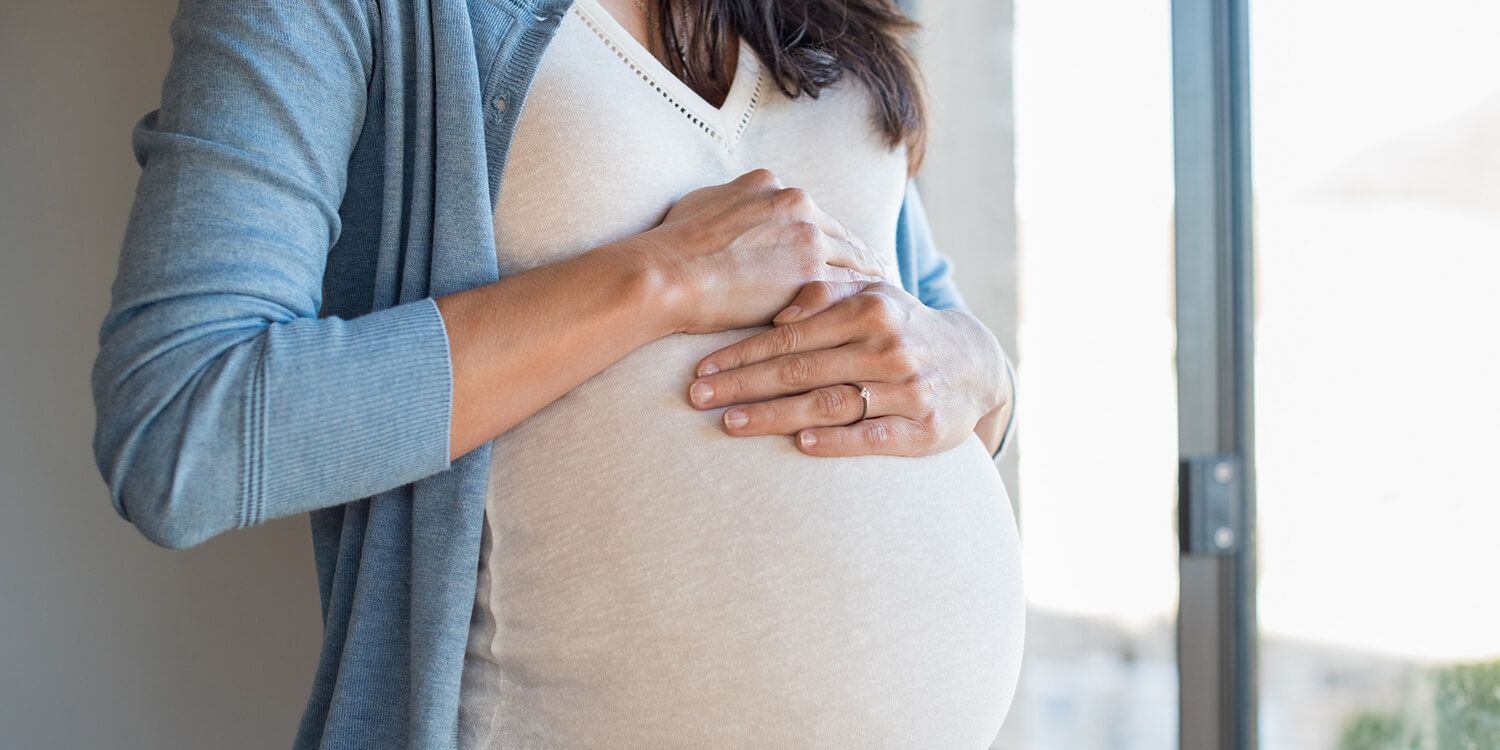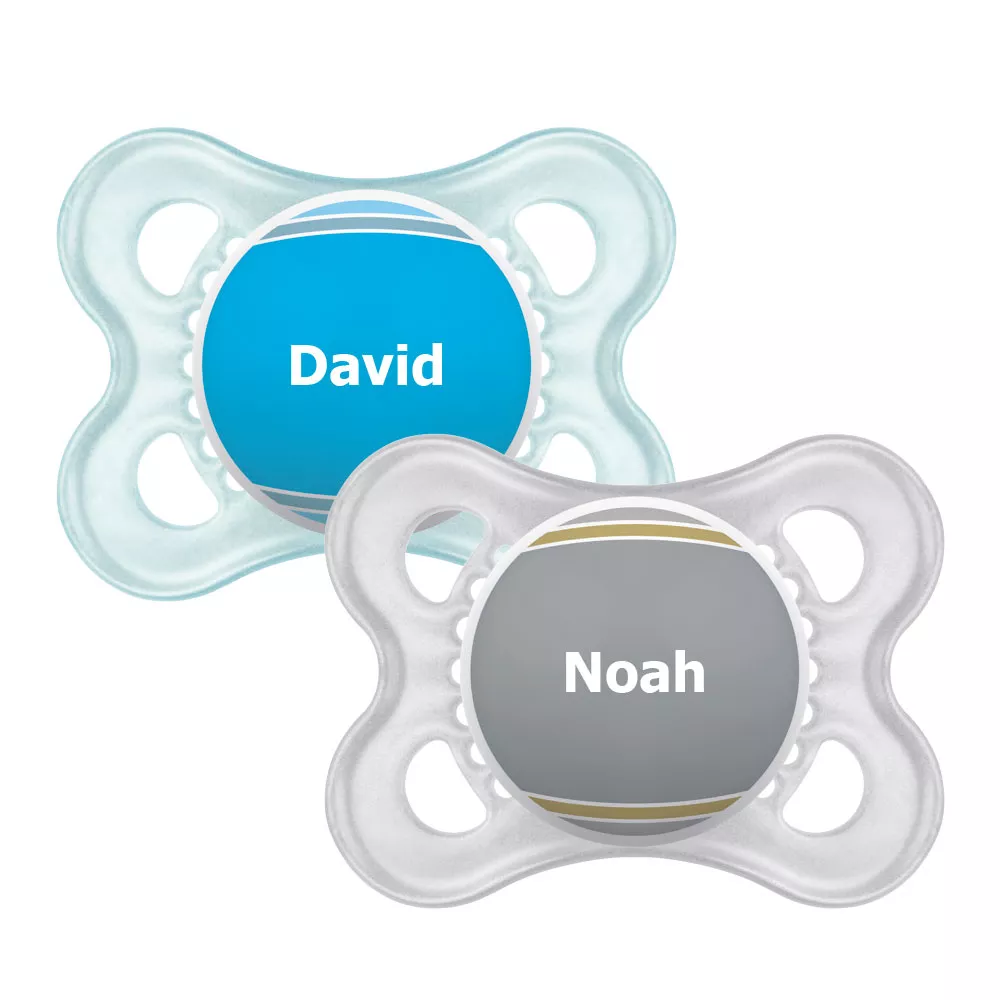Everything is ready for the birth (at least as far as the baby is concerned)! Now you are 36 weeks pregnant, your little one is fully developed, the lanugo (downy hair covering the body) has disappeared and just a little of the vernix caseosa remains. Read on to find out how to recognise whether your baby has dropped into your pelvis, why that is important and what you should do if you feel anxious about the birth.
What's Going On in Your Belly at 36 Weeks Pregnant?
The size of the foetus is around 47 cm (crown - heel) and it weighs approx. 2600 grams. The feet are around 7 cm long.
There is not much more to do, other than – you guessed it – put on weight! Your baby is still around 1 kg below its birth weight. However, the margin of variation differs widely from one baby to another. There is no definition of "normal" without context (such as inherited traits and how the pregnancy has been progressing). Heavier babies born prematurely do better – however, from this point, your baby would be a late premature infant and highly likely to survive well without any medical assistance.
Your baby is now roughly the size of a papaya.
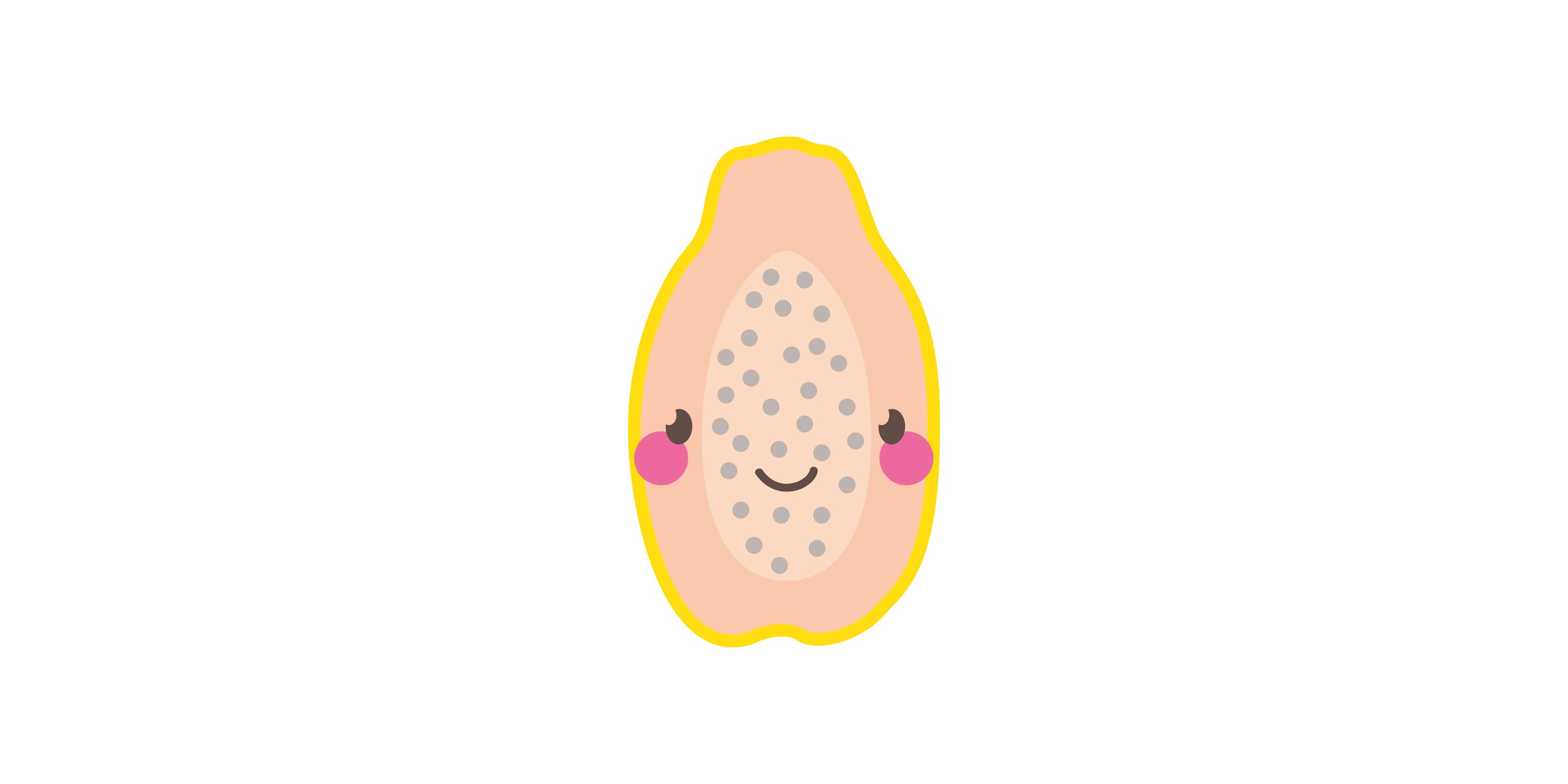
The baby should now be positioned head-down in the pelvis. Some babies will have already dropped into the pelvis – this changes the shape of your bump, which can sometimes look like it is "hanging low". If an examination establishes that your baby has "dropped", this means that the head is now below your pelvic bone. This is an advantage, if the birth begins with a rupture of the membranes, as the umbilical cord cannot become trapped between the head and the pelvic outlet. This would be an "umbilical cord prolapse", which can be a complication in childbirth and endanger the baby's life. However, it’s important to note that a cord prolapse is a very rare occurrence.
How Do You Feel at 36 Weeks Pregnant?
Only 4 weeks to go before the due date! Everything gradually becomes more real and many pregnant women have several thoughts circling their mind:
What do you do if you are worried about the birth?
Everyone talks about it being THE event of a woman's life. Perhaps you have already heard tales of childbirth in your circle of family and friends, or read reports of the experience on an Internet forum. These can be encouraging, but they can also serve to heighten concern. In fact, anxieties about childbirth usually consist of various "areas of concern", for example, pain, the unknown, the hospital, a caesarean section, the newborn, the new role of being a parent. If you know what is worrying you, talk about it with your partner. Psychological or medical advice can also be a great help. If you live in an area where there is midwifery care, the midwife is the perfect person to speak to regarding all your worries, big and small, about the birth.
As to labour pains, every woman has a different experience. One thing is certain: anxiety can increase pain. Relaxation exercises have long been an effective method in obstetrics in reducing pain. These exercises include breathing exercises and hypnosis techniques.
What is the best way to prepare for the birth?
“Hypnobirthing” uses this practice, but birth preparation courses and pregnancy yoga classes also use various techniques to teach active relaxation and movement during labour. What's on offer varies widely from one region to another – enquire about the options in your area and choose the one that's best for you.
At this point, your midwife or doctor can also provide you with information about the options for pain relief during childbirth – whatever reduces your anxiety is good, and that includes obtaining more information. Many women find it helpful to familiarise themselves with the hospital, or even the delivery room, to ease their anxiety.
Fear often arises from the feeling of losing control. You are putting yourself into an uncertain situation with people you don't know in a hospital – the greater the feeling of control over the birth a pregnant woman has, the safer and more relaxed she will usually feel. There are many books on the subject of "self-determined childbirth" that consider what might be best for you – perhaps that would make for interesting reading material in these last few weeks?
It also helps to prepare for the birth by drawing up a birth plan. This plan includes instructions to the Midwives or Doctors, such as whether your partner intends to be present, whether you would like an epidural and whether you would like the baby placed skin-to-skin directly after the birth (unwashed and without any lengthy examination).
Ultimately, one of the most important, but also generally the most difficult points – and not just at the birth – is to be clear about what is really important to you.
Sources:
Your Pregnancy Week by Week, Prof. Lesley Regan, DK Limited, London, 2019, pp. 266 f.




















